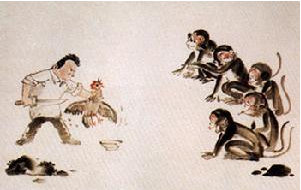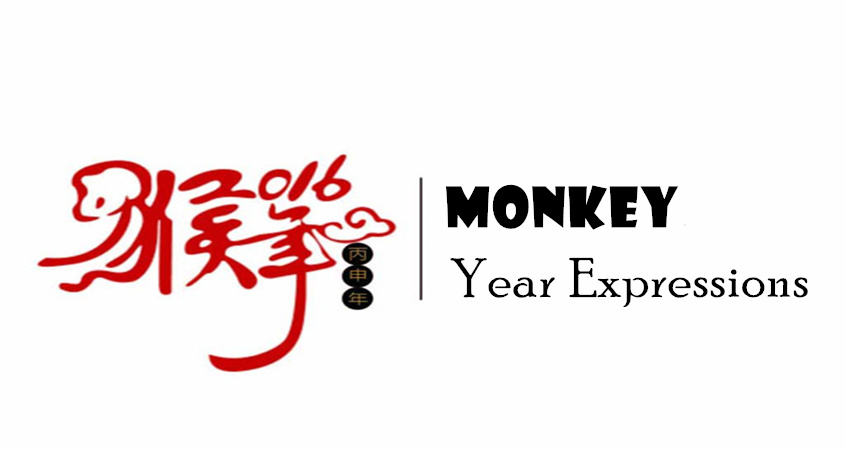In the Chinese lunar calendar, 2016 is the Year of the Monkey, and, with New Year arriving in February, it is just around corner! In honor of the new year let’s learn some daily used expressions with the word monkey, 猴 (hóu).
1. 猴年马月(hóu nián mǎ yuè)
“猴年马月” literally means “monkey year horse month” but Chinese people use this expression to refer to an unknown or unpredictable future prospect, a little like the English “who knows?!”. For example:
我的作业太多了,猴年马月才可以做完!
(Wǒ de zuòyè tài duō le,hóunián mǎyuè cái kěyǐ zuò wán!)
I have too much homework to do. Who knows when it will be done!
2. 猴头猴脑(hóu tóu hóu nǎo)
“猴头猴脑” literally “monkey head, monkey brain” is often used to people, especially kids, who are impetuous or reckless like a monkey. For example:
这个孩子已经十五岁了,但还是猴头猴脑的。
(Zhè ge háizi yǐjīng shíwǔ suì le, dàn háishì hóutóuhóunǎo de。)
This child is already fifteen years old, but he is still impetuous.
3. 尖嘴猴腮(jiān zuǐ hóu sāi)

“尖嘴猴腮” is not a very nice expression! It means “a mouth that sticks out and a chin like an ape’s” and is used to describe someone you think is ugly. For example:
这个男人长得尖嘴猴腮的,很多小孩害怕他。
(Zhège nánrén zhǎng dé jiānzuǐhóusāi de, hěnduō xiǎohái hàipà tā。)
This man looks ugly as he has a sharp mouth and thin cheek, lots of kids are afraid of him.
4. 杀鸡儆猴(shā jī jǐng hóu)

“杀鸡儆猴”, this literally means “kill chicken to warn the monkey”, and it used as an idiom for making an example of someone or something. It describes for the punishment of an individual person or approach (the chicken) to warn off others (the monkeys). For example:
这种杀鸡儆猴的做法能用一次或者两次,如果每次都用就没有作用了。
(Zhèzhǒng shājījǐnghóu de zuòfǎ zhǐ néng yòng yícì huòzhě liǎngcì , rúguǒ měicì dōu yòng jiù méiyǒu zuòyòng le 。)
This approach can be an effective warning to others once or twice, but if you use it every time, it won’t work.
Have a go at testing your knowledge! Read the sentences below and see if you can fill in the blanks with the new expressions.
1. (Tā zhème lìnsè, nǐ yào děng tā qǐng nǐ chīfàn,yào děng dào________。)
他 这 么 吝 啬 , 你 要 等 他 请 你 吃 饭 , 要 等 到_________。
He is so stingy. If you want him to invite you to a meal, you will wait______。
2. (Měigè xīn lǎo bǎn lái gōngsī hòu dōu huì________, wǒ men dōu zhīdào le 。)
每 个 新 老 板 来 公 司 后 都 会________我 们 都 知 道 了 。
When they arrive every new boss will_______, we all know this.

